Israel’s water policies in Palestinian territories amount to 'territorial apartheid': UN rapporteur
Israel has been blocking 70% of the materials needed to build and operate sewage treatment plants
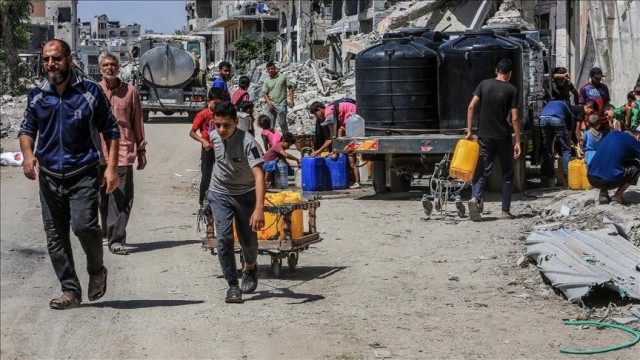
The UN special rapporteur on the human rights to safe drinking water and sanitation said Monday that Israel's "militarization of water" in the Occupied Palestinian Territory is part of its "water and territorial apartheid" policy.
Noting that the Gaza population lives on an average of 4.7 liters of water per person per day, Pedro Arrojo-Agudo, in a press briefing in Geneva, reminded that it is far below the World Health Organization's set minimum requirement in emergencies -- 15 liters.
The only natural source of fresh water is the coastal aquifer, Arrojo-Agudo said, adding that the population of 2.3 million in Gaza has been forced to pump three times more water than the aquifer receives through natural replenishment, resulting in "intense marine intrusion and salinization."
"In addition, Israel has been blocking 70% of the materials needed to build and operate sewage treatment plants as 'dual-use,' preventing proper sewage treatment, which has led to progressive faecal contamination of groundwater," he added.
The official stressed that even before Oct. 7, 40% of the population had been provided with drinking water, adding: "At the outbreak of the war, Israel radically cut off this water supply and the power supply, collapsing desalination plants."
Regarding the diseases that broke out due to lack of clean water, he said 1.7 million cases of infectious diseases – including diarrhea, dysentery and hepatitis A, polio, smallpox – were reported.
"All this, coupled with the lack of medical care, results in deaths, especially of babies and children, making water scarcity and contamination a silent bomb, which has far less visibility than those that destroy buildings and have killed tens of thousands of civilians; but a no less lethal bomb," he said.
Calling Israel's violation of existing international law, as the International Court of Justice has established, "systematic," the rapporteur said: "The militarization of water in the occupied Palestinian territories has been at the heart of a policy of water and territorial apartheid for the past 50 years, including the destruction of basic Palestinian water infrastructure."
He said Palestinians have no access to the Jordan River and cannot build wells or water infrastructure in their own territories.
"They have only 70 liters per person per day, and many rural communities have only 20 liters, while the Israeli population has four times more on average, and illegal settlers receive and use 18 times more water for their crops and swimming pools," he added.
Int'l community failed Gaza, might fail 'once again' West Bank
The UN’s special rapporteur on Palestine, in the same briefing, reminded that the international community has failed in Gaza to prevent "genocide," warning of the risk of failing "once again," but this time in West Bank.
"We have failed to honor one of the major obligations imposed on member states by the Genocide Convention, which is to prevent genocide and to punish genocide," Francesca Albanese said.
"I see the risk of failing, once again, in the West Bank because the attacks Israel has unleashed [are] not just against Palestinians in Gaza. It is against the Palestinians as a whole," Albanese said, adding that the need to protect the Palestinians from "what might be in some weeks or months from now another form of genocide unfolding."
Israel has killed more than 41,000 Palestinians in Gaza since an Oct. 7 cross-border attack. Israeli actions have triggered a humanitarian disaster and an ongoing trial over alleged genocide at the International Court of Justice.
Violence has also increased in the West Bank since last October. Earlier this month, Israeli forces withdrew from Jenin city and its refugee camp after a nine-day operation, leaving a trail of destruction.
UK's decision to suspend 10% of arms export licenses to Israel 'not enough'
Albanese said the UK's decision to suspend 10% of arms export licenses to Israel is "not enough."
"So numerically, it has definitely not done enough. It has done 10% of its job to comply with non-derogable principles of international law, with the provisional measures of the International Court of Justice," she said.
On Sept. 2, the British government announced that it was suspending 30 out of 350 arms export licenses to Israel after a review, warning there is a clear risk that certain UK arms exports to Israel might be used to commit or facilitate a serious violation of international humanitarian law.
The 30 licenses cover components for military aircraft, helicopters, drones, and items that facilitate ground targeting, excluding UK components for the F-35 fighter jet program.

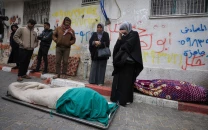


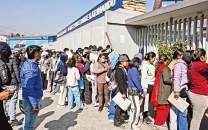
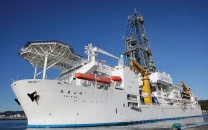
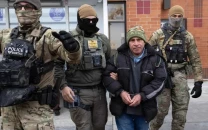





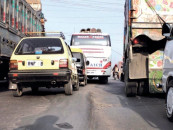






COMMENTS
Comments are moderated and generally will be posted if they are on-topic and not abusive.
For more information, please see our Comments FAQ